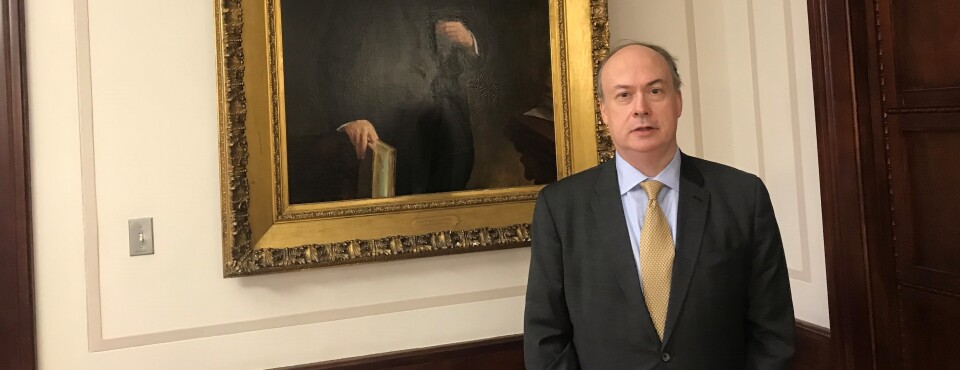Where is Attorney Jeffrey Clark Now?


A disciplinary panel in Washington, DC, has made an initial determination that former Justice Department official Jeffrey Clark may face disbarment. According to this finding, Clark, an environmental attorney without criminal law experience who promoted conspiracy theories such as his belief that 2020 election results had been stolen through smart thermostats.
These findings come from a federal indictment against six individuals for election interference, currently ongoing in Washington D.C.
Why Is He Not in Court?
A federal judge is currently questioning Clark for a case which could see his law license stripped away, and Clark’s lawyer is making three main arguments on his behalf.
First, Clark was acting within his official duties when he wrote a letter urging Georgia lawmakers to convene and reconsider changing their presidential electors. Additionally, Justice Department civil division is charged with defending lawsuits brought against officers of the United States including presidents and vice presidents.
Second, Jones contends that prosecuting Clark would set an undesirable precedent by criminalizing free exchange of ideas in democracy and disbarring attempts violate his Fifth Amendment rights. Jones doesn’t seem persuaded and the hearing could extend into next week – with both sides having an opportunity to submit briefs and convince the panel of this preliminary finding, which as its chair pointed out is nonbinding.
What Happened?
A three-person disciplinary panel will determine whether Clark violated DC law, and could strip him of his law license. Hearings were initiated last week.
Former Justice Department deputy Richard Donaghue testified that he warned Clark not to have unapproved contact with Donald Trump, warning that any unwarranted contacts could endanger his career and potentially endanger elections fraud issues that required Clark’s investigation. Clark insisted, however, that it was his duty to raise concerns.
Clark wrote a letter falsely alleging that the Justice Department was investigating voter fraud in Georgia; however, this letter was never delivered. Additionally, DC Office of Disciplinary Counsel brought ethics charges against Clark which may lead to him losing his license – Hamilton Fox stated they intend on disbarring him as part of their charge and their lawyer stated such prosecution could set a dangerous precedent and undermine protections essential for good government and the free exchange of ideas.
What’s Next?
Clark remains uncertain as his future remains unclear. Currently he faces criminal charges in Georgia for his alleged role in an alleged plot to overturn electoral votes and keep Trump in office, and has joined 19 others who have pled not guilty in this matter.
A separate disciplinary hearing is now taking place to decide whether Clark should lose his license to practice law. A three-person committee found him breaking ethical rules by lying about election fraud.
Phil Fox, DC’s Disciplinary Counsel has stated his intent to seek disbarment. Clark can appeal the committee’s decision before appealing it to the Board of Discipline Counsel.
At his disciplinary hearing, Clark made several claims for privilege, including executive privilege, Law-enforcement privilege, deliberative process privilege and attorney-client privilege. He asserted that prosecution under these circumstances would set an unacceptable precedent that could imperil these vital safeguards for public wellbeing. Judge Jones looked back over at his clerks to inquire if anyone heard what Clark had just said; then made lighthearted jokes with them when responding with “Heard that?” as they left.
Will He Be Charged?
As of March 1, the Washington, DC-based disciplinary panel investigating Clark has yet to issue sanctions, though such an outcome would severely limit his job prospects in another Trump administration.
Attorneys representing Clark contend he should keep his law license, since the panel has yet to decide whether the former Justice Department official violated any bar rules with regard to drafting letter on December 28, 2020. They further state they shouldn’t allow access to documents related to December 28, 2020 as it would violate attorney-client privilege.
Clark’s attorneys have filed a request with Judge Jones to transfer the case from state to federal court, on the basis that Clark was acting within his scope when writing his letter. Jones recently denied an identical request by another co-defendant, Mark Meadows. It remains unknown when Jones will rule on Clark’s request; until then he remains an intriguing presence: charged in Atlanta in Georgia state racketeering case as well as listed as unindicted co-conspirator No. 4 in special counsel Mueller’s election interference case against President Trump.
